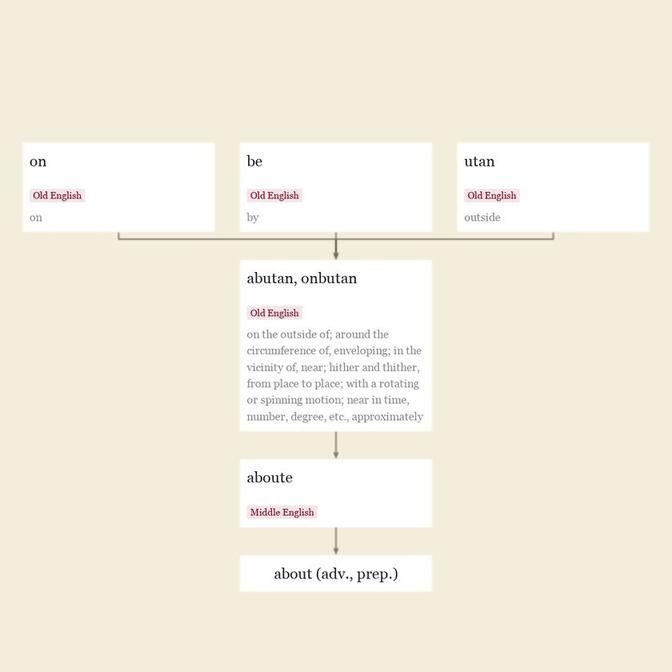walkabout n.
"
Entries linking to walkabout
"
The shift in sense is perhaps from a colloquial use of the Old English word or via the sense of "

Middle English aboute, from Old English abutan (adv., prep.), earlier onbutan "
By c. 1300 it had developed senses of "
From mid-13c. as "
To bring about "
updated on June 02, 2012